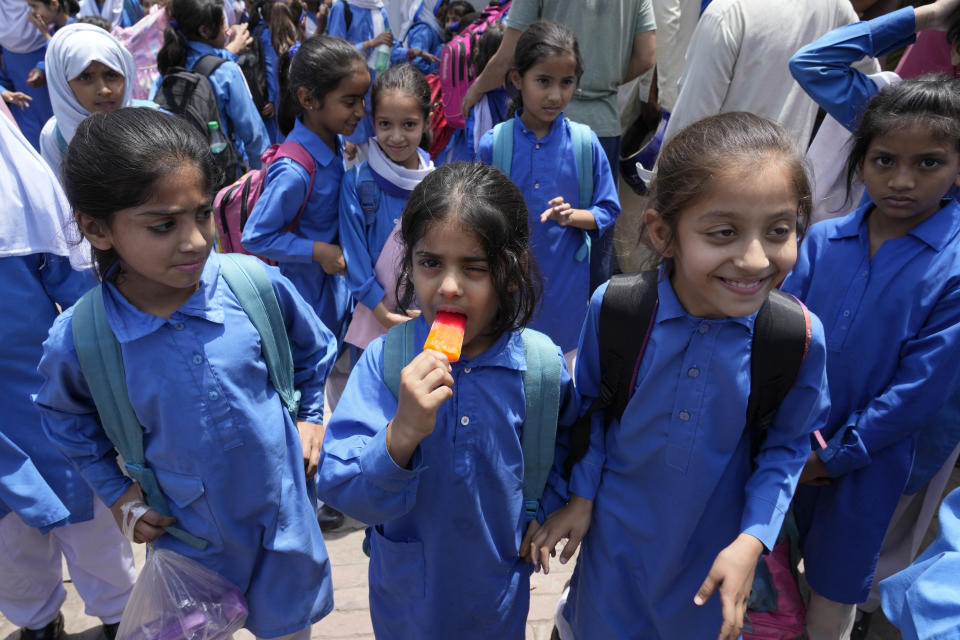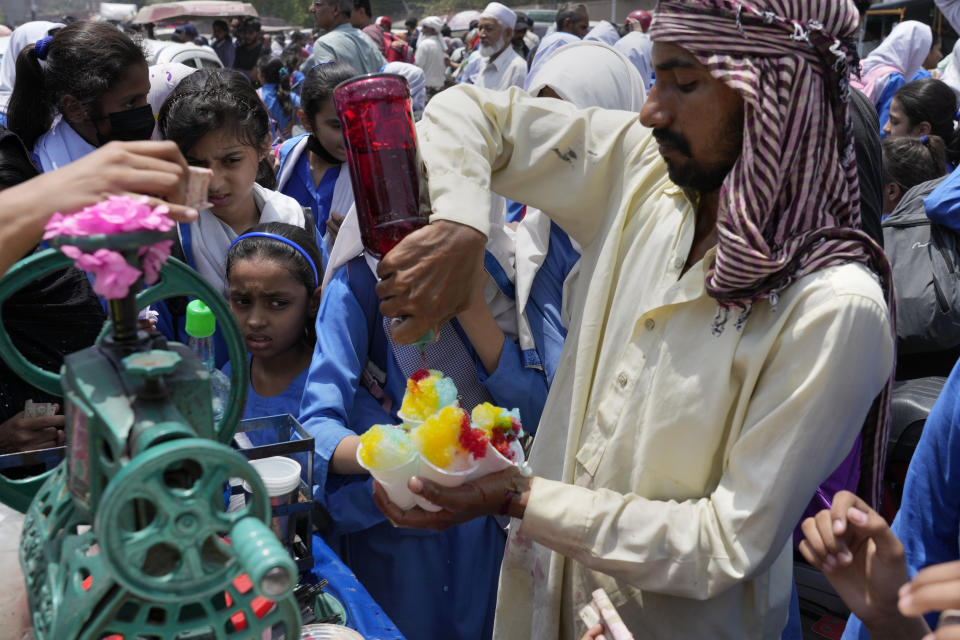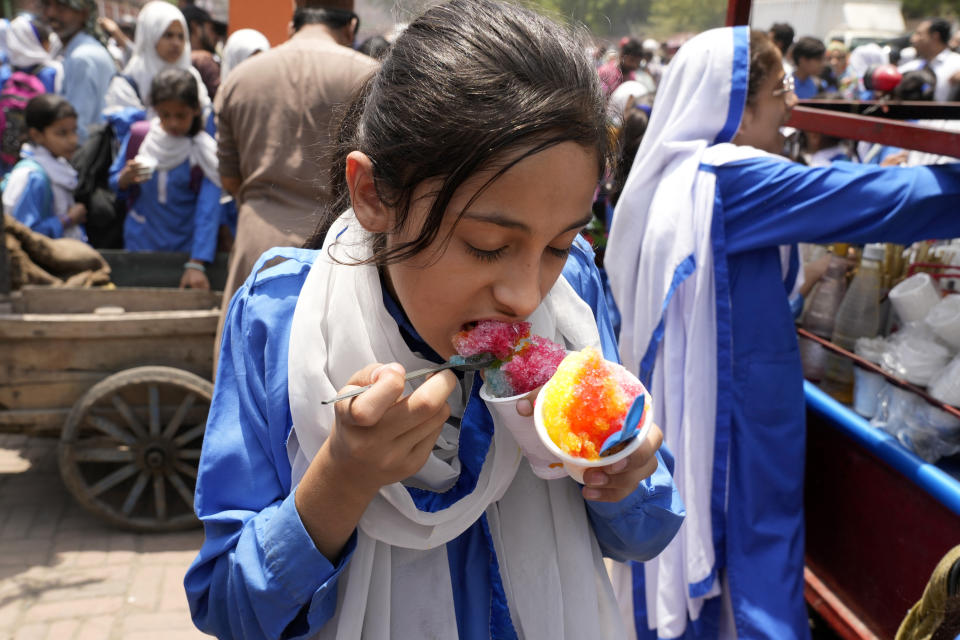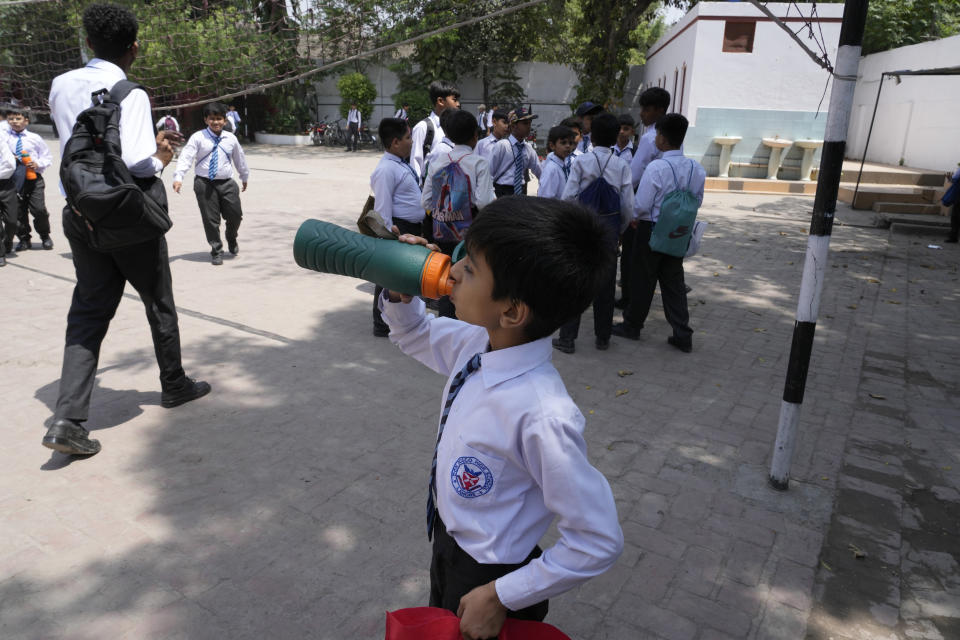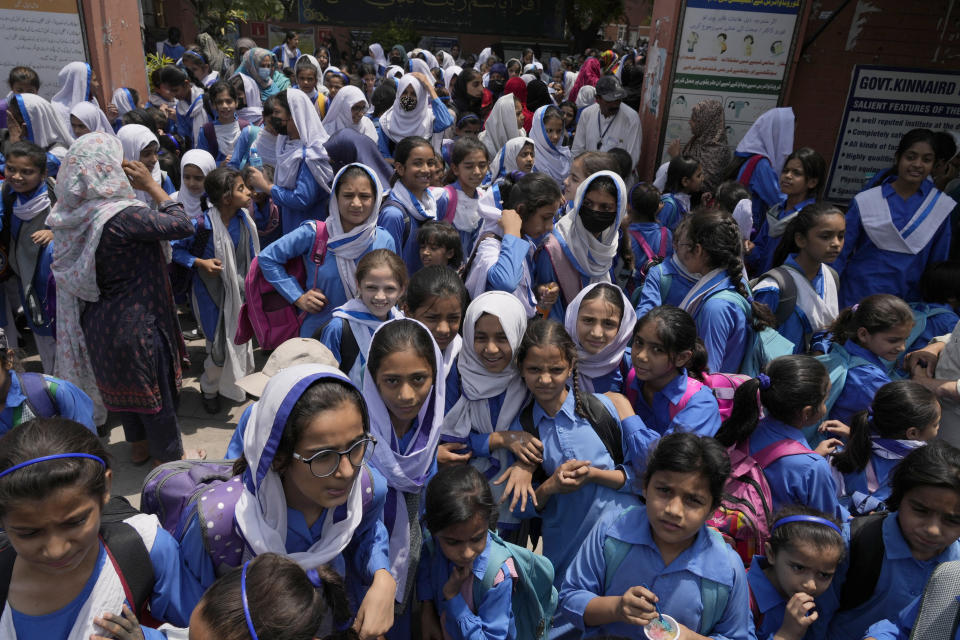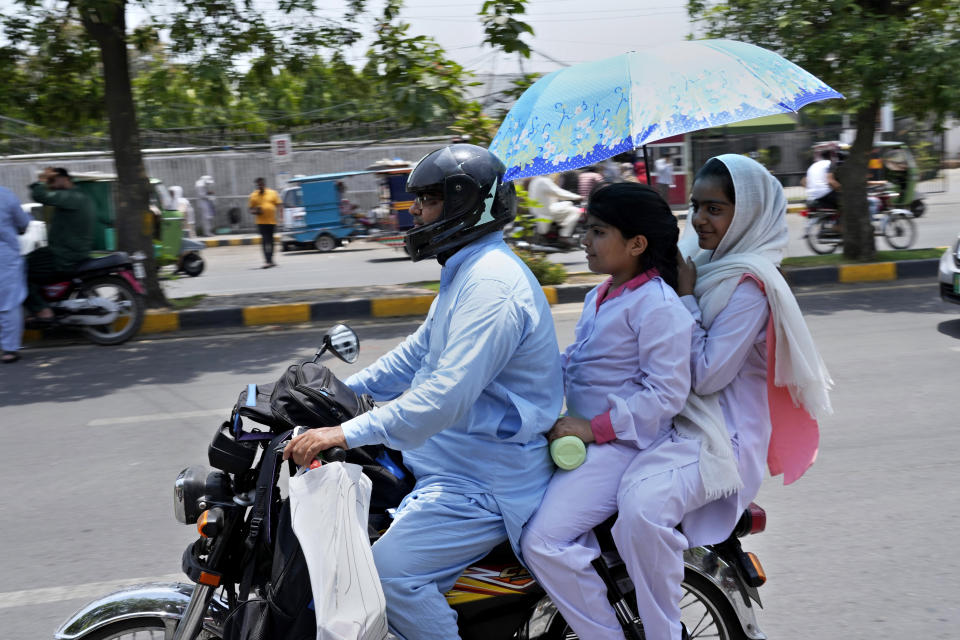Weather forecasters warn Pakistanis to stay indoors ahead of new heat wave
ISLAMABAD (AP) — Authorities in Pakistan on Tuesday urged people to stay indoors as the country is hit by an extreme heat wave that threatens to bring dangerously high temperatures and yet another round of glacial-driven floods.
Pakistan’s most populous province, Punjab, is shutting all schools for a week because of the heat, affecting an estimated 18 million students.
“The sweltering heat will continue this month,” said Zaheer Ahmed Babar, a senior official at the Pakistan Meteorological Department. He added that temperatures could reach up to 6 degrees Celsius (10.8 Fahrenheit) above the monthly average. This week could rise above 40 degrees Celsius (104 Fahrenheit) in many parts of the country, Babar said.
It’s the latest climate-related disaster to hit the country in recent years. Melting glaciers and growing monsoons have caused devastating floods, at one point submerging a third of the country.
Pakistan recorded its wettest April since 1961, with more than double the usual monthly rainfall, according to the national weather center. Last month's heavy rains killed scores of people while destroyed property and farmland, experts say the country witnessed heavier rains because of climate change.
Pakistan is still trying to recover from $30 billion in losses caused by devastating climate-induced floods that killed 1,739 people in 2022.
According to health officials, hospitals were instructed to set up emergency heatwave response centers so that those affected by the scorching temperatures could be quickly treated.
Doctors say heatstroke is a serious illness that occurs when one's body temperature rises quickly because of sweltering heat, potentially causing some to fall unconscious. A severe heatstroke can cause disability or death.
Some areas in Pakistan are also currently facing hours-long power outages.
“We were without electricity for hours on Monday,” said Ibrar Abbasi, who lives on the outskirts of Islamabad.
Scientists have long warned that climate change, driven by the burning of fossil fuels, deforestation and certain agricultural practices, will lead to more frequent and prolonged bouts of extreme weather, including hotter temperatures.
Babar said another intense heat wave will hit the country in June, when the temperature is likely to reach 45 degrees (113 Fahrenheit). He said people should drink a lot of water and avoid unnecessary travel. Farmers and other livestock owners should take measures to protect their animals during extreme heat, he said.
However, many people, especially laborers and construction workers in the impoverished nation, ask how they can stay indoors as their families will suffer if they don't work.
“I am not feeling well because of the stifling heat, but I have to work,” said Ghulam Farid, who owns a small general store in Sheikhupra, a city in Punjab province.
Construction workers were seen sitting near a road on the outskirts of the capital, Islamabad, hoping to get a job. Among them was Mohammad Khursheed, 52, who said he has noticed a change in the patterns of seasons.
“I feel the heat even in the morning, but people say the temperatures will go up even further,” he said.
___
Associated Press writer Babar Dogar contributed to this story from Lahore, Pakistan.
